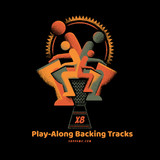Drum Circles for Senior Citizens
Contrary to popular belief, drumming is not just for kids, young adults, rock stars or hippies. Drumming, as a therapy or healing art, benefits those with everything from stress and anxiety to neurological disorders like dementia and Alzheimer’s disease. Drumming within a group improves teamwork, inspires creativity and can bring a smile to the faces of even our oldest friends and family members. Senior citizens are among the many different groups of people that are experiencing the health and wellness benefits of drumming, whether as a participant or as an audience member.
Some senior citizens may have problems with mobility or may be facing serious disorders like Parkinson’s disease. Studies show that by introducing new skills and ideas, the brain can be stimulated and nerve pathways may even regenerate, helping to alleviate many neurological symptoms that seniors may experience. For those who are able to drum, the action of drumming is a great form of exercise for the upper body, and helps stimulate the heart aerobically. Even those with arthritis or other issues who cannot physically drum can be stimulated just by listening and being surrounded by the rhythms of Djembes, bongos and other hand drumming and percussion instruments.
According to PrimalConnection.org, during a pilot program that used drum therapy to reach Alzheimer’s and dementia patients, a 100-year old woman got up from her wheelchair to dance. There was light in the previously-vacant resident’s eyes, “smiles from people who forgot how to smile and words of gratitude from a man that has not spoken in ages.”
t: 344px; width: 425px; float: right; margin: 0px 0px 10px 10px;">
Dorothy Garman, Director of Patient Activities at Lake Placid Nursing Home reflects on the positive benefits of drumming on Alzheimer’s patients, “I don't know if you're familiar with this, but most Alzheimer's patients typically keep their heads down. They sit, heads bowed, with little facial expression, and normally unaware or disinterested in external stimuli. So when we start our sessions we see their heads begin to raise, their eyes begin to move. They become aware of the instruments, of the group, of the facilitator. And when they follow the instructions of the facilitator to "clap and tap" (clap their hands and tap their toes) we recognize this as success before they even put hand to drum.
Socially, senior citizens may feel isolated because of mobility issues, depression or other concerns. As any drum circle drummer knows, the fellowship and community benefits of attending a drum circle provide numerous opportunities for social interaction. The team work involved in a drum circle can be beneficial as well, since senior citizens are likely to enjoy being part of something “bigger” than their own self-care.
The therapeutic benefits of drumming for people of all ages and disabilities are still being researched. The promise, however, in the drumming groups who take the initiative to bring their music and rhythms into the lives of others is a promise of healing, fun and togetherness.
Recent Posts
-
X8 Drums Play-Along Backing Tracks
The new X8 Play-Along Series is being produced for our musician friends wanting a fresh way to work …9th Feb 2025 -
What is the Best Size Djembe for Beginners?
If you're new to the world of percussion and interested in learning the djembe, you're in for a t …16th Jul 2024 -
The Benefits of Becoming a Drumming Teacher: Transforming Passion into Profession
Why become a drumming teacher? Becoming a drumming teacher is an excellent way to share your pas …22nd May 2024



